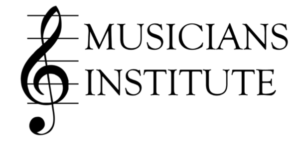
EFFECTIVE AND EFFICIENT INSTRUMENTAL REHEARSALS. Part 1 – Preparation
Skillful Playing is Biblical!
Sing to Him a new song
Play skillfully with a shout of joy.
Psalm 33:3
Clearly, we all have our limitations as musicians. We also know that our God deserves better than the best we could ever present to Him. As we play in ministry, we strive for the best musicianship we can attain, understanding that perfection will surely not happen on earth. At the same time, the fact that our music is a means to an end (that God is worshipped and praised), and not an end unto itself does not excuse shoddy preparation.
Sowing and Reaping
Contrary to the old saying, practice does not make perfect; practice makes permanent. When a player and or group practices correctly, they will improve.
As a director, be a life-long learner. The director is responsible for guiding the improvement of the group through the process of rehearsal. Always look for ways to improve what you do. The more effective and efficient we can be at rehearsing, the more will be accomplished, and the more enjoyable the rehearsals will be. Watch other directors rehearse and conduct. See things that work and also take note of what does not work.
Orchestra seating/set-up
The rhythm section, if included, needs to be as close together as possible for precision and unity.
Set the instruments in their family group together. Consider doublings, such as bassoon near cello, and alto saxophones near French horns.
• rhythm/percussion
• brass
• woodwinds
• strings
A vital principle should be utilized in orchestra set-up. Louder/lower instruments should be in back, and softer/higher instruments in front. Instrumental groups have used varieties of this for centuries. A good set up does not rely on a sound system to make all parts heard. A sound system cannot always rescue a bad set up and make the group sound good anyway.
Truly, in places where instrumentalists play in ministry, we are often greatly limited where instruments can be placed. Sometimes we have little choice where different players can sit. Even so, consider that placing louder instruments in front of softer instruments creates automatic balance problems, again that may not be overcome with micing.
Seating ideas
Violins, flutes, and clarinets work well in front of a group. French horns, saxes, oboe, violas, celli, lower Woodwinds are well suited for the middle. Trumpets, trombones, tuba, rhythm section, and percussion work well in the back if at all possible. The better a group set up works acoustically, the less they need rely on the sound system, though good micing and mixing can help make a good set up sound even better.
Preparation for Rehearsal
Generally, the players must enjoy their conductor, enjoy the rehearsal, and know that they are accomplishing something in rehearsal most of the time. This is vital for long-term player participation.
The players are giving their time to God, not to us, and we must be prepared to make the maximum use of it. We cannot waste everyone’s time by not being prepared to address what is needed. Sight-reading scores in rehearsal is abandoning the director’s responsibility to plan and execute an effective and efficient rehearsal.
Have a pencil in every folder – if you miss it, mark it. With limited rehearsal time (to say the least), everything accomplished needs to be remembered the next time. Remembering musical details between rehearsal and service can easily be crowded out by the rest of life.
Plan what pieces will be rehearsed in what order:
• Early in rehearsal – warm-ups, more familiar pieces, easier sight reading
• Mid Rehearsal – hard work, the most demanding pieces, rehearsing details, music for Sunday
• Late Rehearsal –sight reading, challenging project for the future
• End with something they like, that sounds good
Everyone needs all of the music ahead of time. Time is wasted when parts are missing.
Have a librarian – other than yourself that can retrieve occasional lost or missing parts so you not have to stop rehearsal to dig through a folder.
Prepare rehearsal notes in advance and use them in each rehearsal. The rehearsal is easier to keep moving along when the plan is clear to everyone.
The notes may include:
• rehearsal order
• announcements
• information
• prayer requests
• schedule/calendar
• sign out slip for upcoming absences
Be Prepared Yourself
Spiritually
The director needs to be right with God. Confess and deal with any sin issues in your heart and life.. Pray for God to work in and through the players and the group, for His purposes to be accomplished and for Him alone to be glorified – even in rehearsal. Be in consistent prayer, seeking God to grow and improve the orchestra and each player. As Christians, we rely on Christ living through us (Galatians 2:20). We play, and somehow He is playing through us. His power facilitates and lubricates musical progress.
Musically
Study the scores in advance. Never just read through for the first time as you conduct in rehearsal. Look for:
• tempo markings and tempo changes
• keys and key changes
• which instruments have melody or solo
• which instruments have accompaniment/harmony
• spots that need rehearsing – difficult or unusual passages or lines that will probably need specific attention.
• unusual chords/harmonies, often including accidentals
• dynamics
• style of the piece
Next month’s Musicians Institute post will address conducting and the rehearsal itself.
